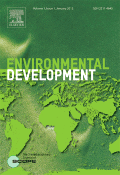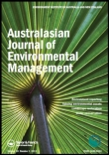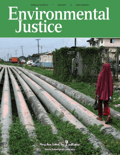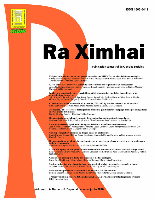
World
Scope & Guideline
Connecting Disciplines, Transforming Perspectives
Introduction
Aims and Scopes
- Interdisciplinary Research on Global Issues:
The journal publishes studies that span multiple disciplines, including environmental science, sociology, economics, and public policy, to tackle complex global challenges. - Sustainability and Environmental Stewardship:
A core focus on sustainability practices, including waste management, renewable energy, and ecological conservation, highlighting innovative solutions and strategies for sustainable development. - Socio-Economic Development and Policy Analysis:
Research that examines socio-economic factors affecting communities, policies for development, and the implications of globalization on local and global scales. - Cultural Perspectives and Indigenous Knowledge:
Inclusion of indigenous knowledge systems and cultural perspectives in addressing contemporary issues, particularly in the context of sustainable practices and community engagement. - Technological Innovations and Their Impact:
Exploration of how digital technologies and innovations can be harnessed to solve various socio-economic and environmental challenges.
Trending and Emerging
- Digital Transformation and Empowerment:
An increasing number of studies focus on how digital technologies can empower marginalized groups, such as women entrepreneurs, and facilitate sustainable practices in various sectors. - Climate Change Adaptation Strategies:
Research on strategies for adapting to climate change, particularly in vulnerable regions, is becoming more prominent, emphasizing resilience and sustainability. - Socio-Ecological Systems and Sustainability:
There is a rising interest in understanding the interconnections between social and ecological systems, particularly in the context of sustainable resource management. - Indigenous Knowledge and Community Engagement:
Emerging themes highlight the importance of integrating indigenous knowledge and community engagement in sustainability efforts, reflecting a shift towards more inclusive research practices. - Health and Environmental Nexus:
Studies examining the intersection of health, population dynamics, and environmental sustainability are increasingly prevalent, underscoring the need for holistic approaches to global challenges.
Declining or Waning
- Traditional Economic Growth Models:
There is a noticeable decline in research focused strictly on traditional economic growth models, as newer frameworks emphasizing sustainability and social equity gain prominence. - Narrowly Defined Agricultural Practices:
Research specifically centered on conventional agricultural practices is becoming less frequent, with a shift towards more comprehensive studies that integrate agro-ecological approaches and sustainability. - Local Development without Global Context:
Studies that solely address local development issues without considering global interconnections and impacts are diminishing, reflecting a growing understanding of globalization's influence. - Static Policy Frameworks:
Research that advocates for static policy frameworks without adaptability to changing socio-economic and environmental conditions is declining, as dynamic and responsive policy approaches gain traction. - Isolated Environmental Studies:
There is a waning interest in environmental studies that do not incorporate socio-economic dimensions, as interdisciplinary approaches become essential for effective solutions.
Similar Journals

Worldviews-Global Religions Culture and Ecology
Advancing Multidisciplinary Insights into Global Ecological ChallengesWorldviews: Global Religions, Culture and Ecology, published by BRILL in the Netherlands, stands as a vital academic journal that explores the intricate interplay between religion, culture, and ecology. With an ISSN of 1363-5247 and an E-ISSN of 1568-5357, this journal serves as an essential resource for researchers, professionals, and students who seek to understand contemporary global issues through a multidisciplinary lens. The journal has achieved notable rankings in its field, including Q2 in Religious Studies and Q3 in Cultural Studies for 2023, showcasing its relevance and impact. Although not currently open access, its commitment to advancing knowledge and fostering dialogue about the ethical and ecological challenges faced in a rapidly changing world makes it indispensable. By converging insights from various academic disciplines, Worldviews plays a crucial role in enriching the understanding of how cultural and religious narratives shape perceptions of environmental responsibility and sustainability.

Granja-Revista de Ciencias de la Vida
Empowering Researchers to Tackle Contemporary ChallengesGranja-Revista de Ciencias de la Vida, published by the Universidad Politécnica Salesiana Ecuador, is a prominent open access journal that has been disseminating valuable research since 2002. With its ISSN 1390-3799 and E-ISSN 1390-8596, this journal serves as a vital forum for researchers in the fields of Agricultural and Biological Sciences, Biochemistry, Earth Sciences, and Environmental Science. Ranking in the Q3 and Q4 quartiles for various categories according to Scopus, it occupies a significant position within its disciplines, with an HIndex that underscores its scholarly impact. Granja aims to foster interdisciplinary collaboration and innovation by publishing rigorous research articles, reviews, and case studies that address contemporary challenges in life sciences, primarily within the context of Ecuador and Latin America. The journal’s commitment to open access ensures that its findings are readily available to a global audience, enhancing the visibility and application of research for academics, professionals, and policymakers alike.

Environmental Development
Leading the charge in transformative environmental research.Environmental Development is a premier academic journal published by Elsevier, dedicated to advancing the field of environmental science through interdisciplinary research and innovative practices. With a focus on geography, planning, and development, as well as management, monitoring, policy, and law, this journal provides a rigorous platform for scholars and practitioners to share insights that shape sustainable environmental policy and practice. Holding a prestigious Q1 ranking in both relevant categories and boasting impressive Scopus rankings - 62 out of 821 in Geography and 60 out of 399 in Environmental Science - Environmental Development stands out as a critical resource for those invested in the future of our planet. The journal emphasizes impactful research that addresses contemporary challenges, fostering dialogue across disciplines and geographical boundaries. With a commitment to high-quality research, it offers an important outlet for those aiming to influence environmental policy and developmental strategies globally. Join the growing community of researchers, professionals, and students engaged in promoting sustainable environmental practices through the knowledge shared in this esteemed publication.

Australasian Journal of Environmental Management
Empowering voices in the realm of environmental stewardship.The Australasian Journal of Environmental Management is a highly regarded publication in the field of environmental studies, published by Taylor & Francis Ltd. With an ISSN of 1448-6563 and an E-ISSN of 2159-5356, this journal serves as a pivotal platform for disseminating innovative research and insights pertaining to the management of environmental resources across Australia and broader geographical contexts. The journal has achieved impressive rankings, including a Q2 classification in Geography, Planning and Development and a Q3 in Management, Monitoring, Policy and Law for 2023, highlighting its relevance and impact within the academic community. Researchers and professionals are encouraged to contribute to its mission of advancing knowledge and practices in sustainable environmental management. With a publication history spanning from 1996 to 2024, the journal remains committed to fostering interdisciplinary collaboration and critical discourse on environmental challenges. While access options may vary, the significance of this journal as a resource for students and practitioners alike cannot be overstated, as it shapes contemporary perspectives on environmental policy and management.

Facets
Illuminating Complex Challenges with ClarityFacets is a prominent open-access journal published by Canadian Science Publishing, dedicated to the multidimensional exploration of scientific knowledge across various disciplines. With an ISSN of 2371-1671, this journal has established itself as a vital resource for researchers, professionals, and students alike since its transition to open access in 2016. Based in Ottawa, Canada, Facets enjoys a remarkable reputation, evidenced by its ranking in the top quartile (Q1) of multidisciplinary journals as of 2023, and its impressive Scopus ranking as #24 out of 171, positioning it in the 86th percentile. The journal aims to facilitate innovative research and foster collaborations by providing a platform for cutting-edge studies that address complex, interdisciplinary challenges. The focus on a broad scope ensures that diverse perspectives contribute to the ongoing conversation in the scientific community, making Facets an essential point of reference for those seeking to stay at the forefront of scientific research.

Environmental Justice
Bridging geography, health, and policy for environmental justice.Environmental Justice is a leading interdisciplinary journal published by MARY ANN LIEBERT, INC that provides a vital platform for the exploration of environmental issues through the lens of social equity and justice. With a strong focus on the intersection of geography, health, and policy, this journal spans topics from spatial inequality to public health implications related to environmental risks. Since its inception in 2008, the journal has gained recognition, achieving a Q1 ranking in Geography, Planning, and Development and a Q2 ranking in both Health, Toxicology, and Mutagenesis as well as Management, Monitoring, Policy, and Law. The journal is an essential resource for researchers, policymakers, and practitioners alike, reflecting the increasing importance of environmental justice in addressing global challenges. Although it does not operate under an open-access model, the comprehensive insights published in Environmental Justice are instrumental for advancing scholarly discourse and practical applications in the field.

Revista Ra Ximhai
Fostering Understanding of Indigenous Knowledge and CultureRevista Ra Ximhai is a distinguished academic journal published by Universidad Autónoma Indígena de México, specializing in interdisciplinary studies related to indigenous knowledge, culture, and socioeconomic issues. Since its inception as an Open Access publication in 2005, the journal has championed the dissemination of research that amplifies indigenous voices and perspectives, fostering an enriched understanding of various fields including anthropology, sociology, and environmental studies. Although it does not currently have an H-index or Scopus rankings, Revista Ra Ximhai remains vital for researchers, professionals, and students who are engaged in or studying indigenous rights and cultural preservation. With a commitment to scholarly excellence and accessibility, the journal makes significant contributions to its field, making it an invaluable resource for those dedicated to the advancement of knowledge regarding indigenous communities, especially in Latin America.

Novos Cadernos NAEA
Empowering interdisciplinary dialogue for a sustainable future.Novos Cadernos NAEA is a prominent open-access journal published by Universidade Federal do Pará, dedicated to advancing the field of applied social sciences and environmental studies. Since its inception in 1998, this journal has established itself as a vital platform for researchers and practitioners to disseminate innovative research, engage in scholarly conversations, and promote interdisciplinary approaches to contemporary issues affecting society and the environment. With an ISSN of 1516-6481 and an E-ISSN of 2179-7536, it aims to enhance accessibility to knowledge by ensuring that all articles are freely available online, thereby supporting the global academic community. The journal's commitment to quality research is evident, making it an essential resource for scholars, students, and policymakers looking for cutting-edge analysis and insights in their fields.

Iberoamerican Journal of Development Studies
Advancing knowledge for a sustainable future.Welcome to the Iberoamerican Journal of Development Studies, a leading platform for academic discourse in the field of development studies, published by the UNIV ZARAGOZA DEV COOPERATION CHAIR within the SPANISH NETWORK DEV STUDIES. Since its inception in 2012, this open-access journal has provided a vital resource for researchers, professionals, and students alike, fostering interdisciplinary dialogue on pressing global challenges in development, geography, history, law, sociology, and political science. With an ISSN of 2254-2035 and an impressive Scopus ranking in History (percentile 80th) and varying quartiles across other disciplines, the journal stands out as a significant contributor to the academic landscape. It offers a unique perspective that bridges theory and practice, encouraging submissions that reflect innovative methodologies and critical analyses of socio-economic dynamics. With its commitment to open access, the journal ensures that vital research is accessible to a global audience, thereby advancing knowledge and policy-making in the field.

GLOBAL CHALLENGES
Innovating Research to Meet Global Demands.GLOBAL CHALLENGES is a leading multidisciplinary journal published by Wiley-V C H Verlag GmbH, dedicated to addressing the critical and complex issues faced by our global society today. Since its inception in 2017, the journal has embraced an Open Access model, ensuring that its innovative research is readily available to a wider audience, fostering collaboration and knowledge sharing. With an impressive Q1 ranking in the Multidisciplinary category for 2023, it positions itself among the top 8% of journals in the field, further solidified by its 93rd percentile rank in Scopus. Covering a broad range of topics that intersect various disciplines, the journal seeks to inspire researchers, professionals, and students alike to engage with and contribute to solutions that resonate across diverse sectors. The ongoing commitment to advancing scientific knowledge and tackling pressing global challenges makes GLOBAL CHALLENGES an essential resource for anyone invested in the future of our planet.